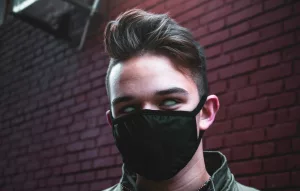When diving into the world of horror films, even the most seasoned moviegoer might find themselves unnerved by certain titles. Whether it’s the intense suspense, unsettling themes, or the sheer terror that these films invoke, there’s a special kind of chill that horror movies provide. For those who prefer to stick to lighter genres, here’s a deeper dive into 15 movies that might be best avoided if horror isn’t your cup of tea. Setting the stage for what many consider the golden standard of horror, The Exorcist (1973) remains a cinematic milestone. This film is renowned for its harrowing depiction of demonic possession, focusing on a young girl whose unsettling transformation becomes the focal point of a battle between good and evil. While the special effects were groundbreaking at the time, it’s the film’s exploration of themes like faith and the human soul’s vulnerability that leaves a lasting impression. The infamous head-spinning scene and chilling voice work have cemented the movie’s place in horror history. It’s a film that not only scares but also prompts introspection about the nature of evil. Moving forward a few decades, The Conjuring (2013) introduces audiences to the world of paranormal investigations, led by the real-life duo, Ed and Lorraine Warren. The movie’s strength lies in its balance between supernatural horror and the genuine emotional connection of a family in distress. The film’s success spurred a franchise that delves deeper into the Warrens’ case files, but the original remains the most visceral, with its cleverly timed jump scares and the ever-present, oppressive atmosphere that leaves viewers on edge. It’s a reminder of how real-life experiences can be reimagined into nightmares on screen.
The Babadook (2014) takes a different approach, opting to explore the internal horrors of grief and loss. At its core, the film is about a mother’s struggle with the loss of her husband and the impact it has on her relationship with her son. The titular creature is less a monster and more a manifestation of the mother’s unresolved emotions, turning the film into a chilling psychological study. For those who find horror in the depths of the mind rather than the shadows of the night, “The Babadook” offers a profound, albeit unsettling, experience.
In a similar vein, Hereditary (2018) presents a harrowing look at family dynamics and the sinister legacies passed down through generations. The film’s slow-burn approach to horror is layered with symbols and imagery that invite multiple viewings to fully appreciate. The narrative is deeply unsettling, not just for its supernatural elements, but for the raw portrayal of familial grief and trauma. The film’s climax is a crescendo of terror that seals its reputation as a modern horror masterpiece.
A Quiet Place (2018) shifts the focus to a world where sound is both a threat and a weapon. This film uniquely combines elements of horror with science fiction, creating an environment where silence is paramount. The attention to auditory detail heightens the tension, making every creak and whisper a potential catalyst for disaster. While not a traditional horror film, its suspenseful execution and heart-stopping moments make it an intense experience.
On the other hand, It Follows (2014) brings a fresh take on the horror genre by exploring themes of inevitability and the looming presence of death. The film’s premise revolves around a supernatural entity transmitted through intimate encounters, relentlessly pursuing its host. This allegory for the fears surrounding adolescence and mortality resonates deeply, making it a contemplative yet terrifying watch. The film’s minimalist style and haunting score contribute to its eerie tension.
Get Out (2017) stands out as a horror film that intertwines social commentary with psychological tension. Director Jordan Peele uses the horror genre to dissect racial tensions, creating a narrative that’s both unsettling and enlightening. The film’s success lies in its ability to unearth the subconscious fears and biases that plague society, presented through a lens of dark satire and suspense. Its impact extends beyond the screen, sparking discussions on race relations and societal norms.
Set in the stark landscape of 17th-century New England, The Witch (2015) crafts a story steeped in historical and supernatural dread. The film’s authenticity in language and setting immerses viewers in an era where religious fervor and superstition ruled. The slow-building tension and atmospheric horror serve as a backdrop to themes of isolation and paranoia, making it as much a psychological thriller as it is a horror movie.
Paranormal Activity (2007) revitalized the found-footage subgenre with its simplistic yet effective approach to horror. The film’s focus on a couple’s night-time experiences with a malevolent entity in their home plays on the primal fear of the unknown. Its minimalistic production and realistic portrayal of domestic life gone awry create an unsettling sense of voyeurism, inviting audiences to question the safety of their own homes.
Suspiria (2018), a reimagining of the 1977 classic, is a visual and auditory feast that delves into the arcane world of witchcraft within a renowned dance academy. The film’s use of color, choreography, and an evocative score blends to create an experience that is as beautiful as it is disturbing. The narrative’s exploration of power dynamics and the occult invites viewers into a labyrinth of horror that transcends the typical genre boundaries.
Midsommar (2019) transports the horror from dark, confined spaces to the bright, open landscape of a Swedish midsummer festival. The juxtaposition of daylight and horror challenges traditional genre conventions, creating a surreal experience. The film is an exploration of grief and human relationships set against the backdrop of a seemingly idyllic commune that hides sinister intentions. Its slow unraveling of terror is both hypnotic and deeply unsettling.
The Shining (1980) remains a cornerstone of psychological horror, with its depiction of a family’s descent into madness within an isolated hotel. Stanley Kubrick’s meticulous direction and Jack Nicholson’s iconic performance combine to create an atmosphere of inevitable doom. The film’s exploration of psychic abilities and the nature of evil continues to captivate and terrify audiences, making it a must-watch for horror enthusiasts.
In Rosemary’s Baby (1968), the terror is not derived from overt scares but rather from the insidious manipulation and exploitation of a young woman. The film’s slow-burn approach allows for the mounting tension and paranoia to seep into every scene, creating a sense of claustrophobic dread. Its themes of control and autonomy resonate deeply, offering a chilling commentary on societal expectations and personal agency.
Insidious (2010) blends supernatural elements with psychological horror, focusing on a family’s attempt to rescue their son from a realm inhabited by evil spirits. The film’s use of jump scares and atmospheric tension creates an experience that’s both thrilling and terrifying. Its exploration of the astral plane and the unknown adds a unique twist to the haunted house narrative, drawing viewers into a world where the boundaries between reality and nightmare blur.
For those who prefer to steer clear of horror, it’s essential to recognize the emotional and psychological impact these films can have. While each movie brings something unique to the genre, they all share a common goal: to unsettle and provoke thought. Whether through supernatural elements, psychological tension, or societal reflection, these films challenge viewers to confront the darker aspects of the human experience. If horror isn’t your preferred genre, it might be best to explore other cinematic avenues, leaving these chilling tales to those who thrive on the thrill of fear.



